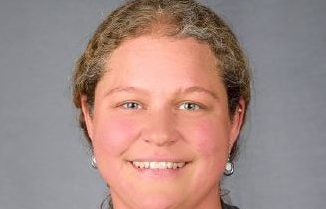JOHNSTON: Summer sun safety tips
Published 8:43 am Tuesday, June 16, 2020

- Shonda Johnston is the Clark County Extension agent for family and consumer sciences.
|
Getting your Trinity Audio player ready...
|
I can hear Olaf singing “In Summer” this week. Can you?
If you can’t, look up the song on YouTube, and it will get you in the mood.
The first day of summer is this weekend. As we all know, this summer will be different than any we’ve probably seen.
I would normally be planning a vacation to somewhere sunny or going to an amusement park, a particular family favorite. But our current situation calls for certain limitations and restrictions.
As I keep telling my kiddos, “It is what it is.” So we adapt.
We’ve been loving taking advantage of the Summer Involvement Program at College Park for something fun to do from 10 a.m. to 2 p.m. on Mondays and Fridays. Check out their Facebook page for the great things they have going on.
Even though many of the normal summer activities will have to be put on hold this year, one thing that isn’t on hold is the importance of sun safety.
When we are outside in the sun, we have to be sure to use sunscreen and watch for signs of heat-related illness.
Using sunscreen the right way is the best way to prevent skin cancer and prevent or delay aging of the skin.
For the best protection, stay in the shade and wear protective clothing, a hat with a wide brim, and sunglasses as well as sunscreen. To protect your lips, apply a lip balm with an SPF of at least 15.
Follow these tips from dermatologists when applying sunscreen:
— Choose a sunscreen that has an SPF of 30 or higher, is water resistant and provides broad-spectrum coverage.
— Apply sunscreen generously 15 minutes before going outdoors.
— Adults need to use one ounce — or enough to fill a shot glass — of sunscreen to fully cover their body.
— Do not forget to apply sunscreen to your neck, face, ears, tops of your feet and legs. — To stay safe from the sun, reapply sunscreen every two hours or immediately after swimming or sweating.
There are several heat-related illnesses, including heatstroke (the most dangerous), heat exhaustion and heat cramps.
The best way to prevent heat-related health risks are water, rest and shade. Getting plenty of these three things will help you beat the heat.
The best way to avoid a heat-related illness is to limit exposure outdoors during hot days and by cooling off in the air-conditioning.
Excessive exposure to heat can lead to heat cramps, heat exhaustion and heatstroke.
Be on the lookout for these signs and symptoms of heat-related illnesses:
— Heatstroke: Heatstroke is a medical emergency. If an individual suddenly stops sweating and feels hot to the touch, becomes confused, faints or has seizures, call 911 immediately.
Place the individual in a cool, shady area, loosen and moisten clothing, and apply ice or a cold compress until medics arrive.
— Heat exhaustion: Signs of heat exhaustion include cool, moist skin, nausea, headache, dizziness, weakness and rapid pulse. Individuals should immediately lie down in a cool area, drink plenty of water and apply cold compresses or ice packs if available. If signs of heat exhaustion do not stop or they get worse, the individual should go to the emergency room.
— Heat cramps: Sweating causes a loss of body salts and fluids, and can lead to heat cramps. An individual suffering from muscle spasms or pain because of the heat should move to a cool area, rest and hydrate.
According to the Centers for Disease Control and Prevention, if you are outside during hot days you can also use these tips to avoid getting sick:
— Stay hydrated by drinking more liquid than you think you need. Avoid or limit drinks with caffeine and alcohol.
— Avoid spending time outdoors during the hottest part of the day, which is from 11 a.m. to 3 p.m.
— Take frequent breaks when working outdoors.
— Pace yourself when you run or otherwise exert yourself outside. — Wear loose-fitting, lightweight and light-colored clothing.
Reach out to the Clark County Cooperative Extension office if you would like more information about sun safety.
You can also check out the June 22 SIP bags at College Park, which are beach-themed and have some great info from the Extension Office as well as other community partners about how to have fun in the sun.
Shonda Johnston is the Clark County Extension agent for family and consumer sciences. She can be reached at 859-744-4682 or by email at shonda.johnston@uky.edu.





